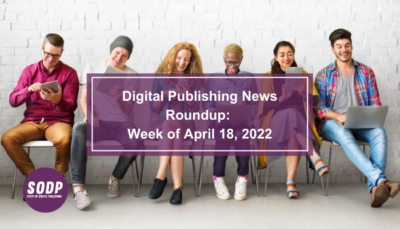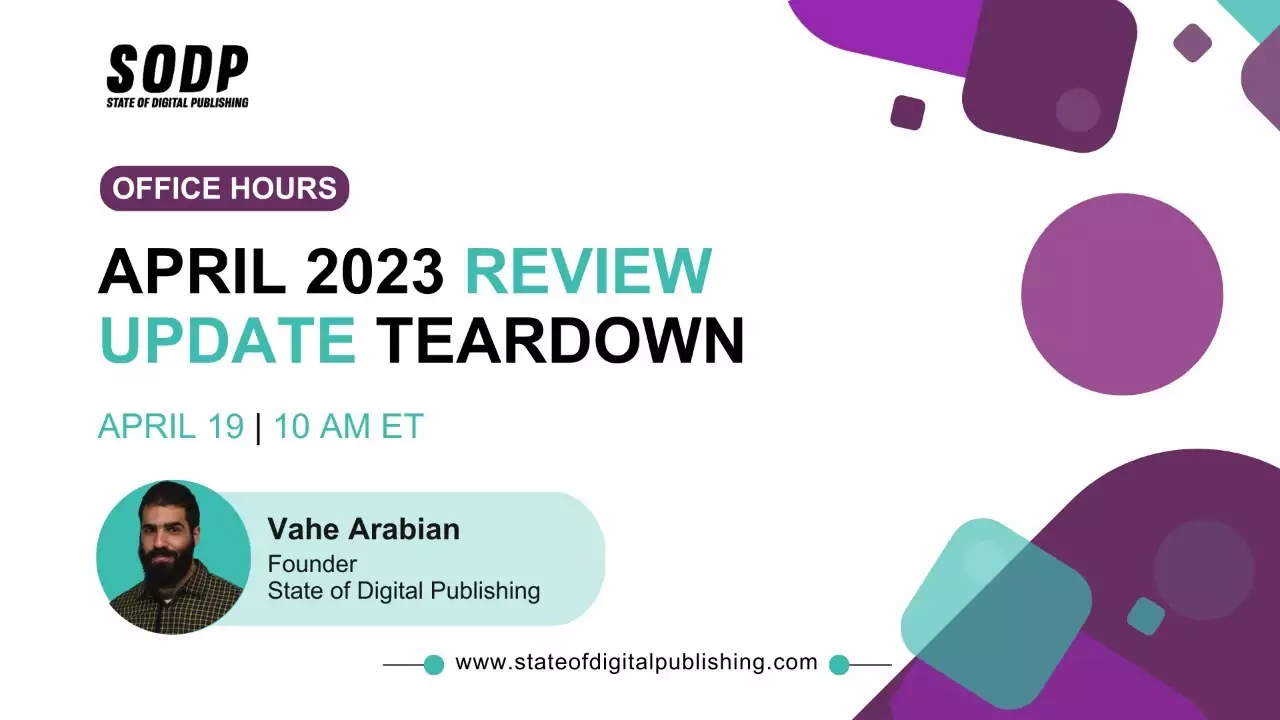What’s been happening in the world of digital publishing over the last week? Here’s your weekly round-up of news, announcements, product launches, and more.
Reports and trends
Google Releases Annual Search Spam Report
Google has published its annual report on search spam revealing SpamBrain, a machine learning-based spam identification system, took action on six times as many spam sites in 2021 as it did in 2020.
By identifying these sites, Google claims a 70% reduction in hacked spam and a 75% reduction in gibberish spam on hosted platforms. Read more
Why it matters: “With the goal of improving search quality and protecting user safety, Google claims significant progress in fighting link spam, scams and online harassment.”
“An immediate drop in content”: A new study shows what happens when big companies take over local news
From Alden Global Capital to Sinclair Media, tales of corporate media takeovers of local news outlets — and their chilling effects — are everywhere. A new study published late last month in New Media & Society journal provides further evidence of the devastating consequences of corporate ownership. Read more
Why it matters: The article highlights the overview of the study:
“1. Acquisition leads to a significant, but not disproportional, decrease in the volume of local content produced by local newspapers;
2. Coverage of local places in the periods following acquisition is significantly more concentrated than coverage in the periods prior to acquisition;
3. Articles produced to be shared across regional hubs of newspapers are significantly less local—and discursively more national—than articles unique to a given newspaper.”
A Downtick Is Coming for Online Advertising
Obstacles are mounting against online-advertising giants, but the pain won’t be spread evenly.
Ahead of first-quarter reports coming from the industry’s major players over the next few weeks, Wall Street has taken on a notably cautious tone for the sector. The combined weight of rising inflation, continued supply-chain challenges, the war in Ukraine and changes last year to Apple’s mobile operating system are all expected to take some toll on the sector. Read more
Regulations
Google gives Europe a ‘reject all’ button for tracking cookies after fines from watchdogs
Google is introducing new options to reject tracking cookies in Europe after its existing dialog boxes were found to be in violation of EU data laws.
Earlier this year, France’s data protection agency CNIL fined Google €150 million ($170 million) for deploying confusing language in cookie banners. Previously, Google allowed users to accept all tracking cookies with a single click, but forced people to click through various menus to reject them all. This asymmetry was unlawful, said CNIL, steering users into accepting cookies to the ultimate benefit of Google’s advertising business. Read more
Why it matters: “The use of cookie banners in general remains a confusing and frustrating experience for most internet users. Giving people the option to reject or accept cookies was supposed to offer greater control over users’ data, but, as the Google example shows, this can depend on how these options are implemented.”
EU agrees on landmark law aimed at forcing Big Tech firms to tackle illegal content
The European Union agreed on new digital regulations Saturday that will force tech giants like Google and Meta to police illegal content on their platforms more aggressively, or else risk potential multibillion-dollar fines. Read more
Why it matters: “A key part of the legislation would limit how digital giants target users with online ads. The DSA would effectively stop platforms from targeting users with algorithms using data based on their gender, race or religion. Targeting children with ads will also be prohibited.”
Web scraping is legal, US appeals court reaffirms
Good news for archivists, academics, researchers and journalists: Scraping publicly accessible data is legal, according to a U.S. appeals court ruling.
The landmark ruling by the U.S. Ninth Circuit of Appeals is the latest in a long-running legal battle brought by LinkedIn aimed at stopping a rival company from web scraping personal information from users’ public profiles. The case reached the U.S. Supreme Court last year but was sent back to the Ninth Circuit for the original appeals court to re-review the case. Read more
Social media
Instagram Wants To Make Hashtags More Valuable
Instagram is testing out ways to make hashtags more valuable by adjusting how top posts are ranked on hashtag pages.
Now, more recent and timely content will be surfaced in the section that curates top hashtags. Read more
Why it matters: As per the article, “The company hopes these changes will make hashtags more valuable to users, which is presumably determined by a measurable increase to engagement levels.”
TikTok rolls out interactive add-ons for in-feed ads globally
Content from our partners
TikTok announced this week that interactive add-ons are now available globally for in-feed ads to help brands create more engaging ads on its platform. The company says interactive add-ons offer a way to engage with users through popups, stickers and other visual elements. Read more
Why it matters: “Interactive add-ons drive engagement by catching the attention of audiences in a uniquely innovative and exciting way,” TikTok said in a blog post. “Our research shows that 57% of viewers are more likely to search for brand information online when they connect with businesses on TikTok. Acting as an extension of your creative idea, Interactive Add-Ons offer flexible formats that encourage consumers to join in the fun when they see your ad.”
Instagram to improve its ranking system to better highlight original content
Instagram head Adam Mosseri announced today that the company is going to tweak its ranking algorithm to highlight original content more on its platform. Following the announcement, a spokesperson for the social media giant told TechCrunch in an email that Instagram is making changes to its ranking algorithm to prioritize the distribution of original content, rather than reposted content, in places like the Reels tab and feed. Read more
Why it matters: As the article points out, “Instagram notes that as it recommends more content on the app, it believes that it’s important that the credit, distribution, growth and monetization go to the original creator.”
Twitter bans climate change denial ads
On Earth Day, Twitter announced a ban on ads that promote climate change denial. It said misleading advertising that contradicts scientific consensus on the crisis won’t be permitted on the platform under its policy on inappropriate content. Read more
Why it matters: The article points out: “This move builds on some other measures Twitter is taking to address climate change. By the end of 2022, Twitter aims to only be using carbon-neutral power sourcing at its data centers. It also joined the EU climate pact earlier this year. Among other things, Twitter committed to switch to renewable electricity at its leased operations in the bloc and to increase its investments in carbon-removal tech.”












